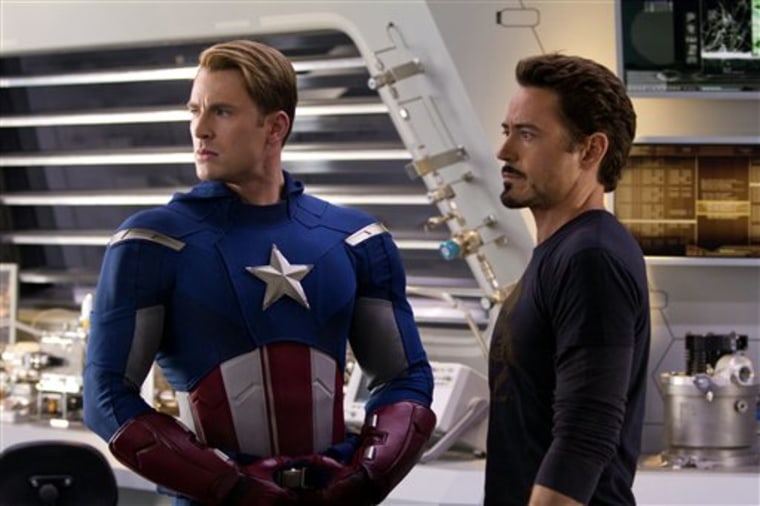While the Pentagon usually likes to get screen time on Hollywood blockbusters, government officials backed out of their opportunity to participate in Disney’s new film, “The Avengers.” Apparently there was some creative confusion over the military’s role in the movie, Wired reports.
Initially approached to contribute official army vehicles, the military declined. The ambiguity of S.H.I.E.L.D., the fictional international agency which assembles the superheroes, posed a problem for government officials because they weren’t clear how it stacked up to their own armed forces.
“We couldn’t reconcile the unreality of this international organization and our place in it,” Phil Strub, the Defense Department’s Hollywood liaison, said in an interview with Wired's Danger Room. “To whom did S.H.I.E.L.D. answer? Did we work for S.H.I.E.L.D.? We hit that roadblock and decided we couldn’t do anything with the film.”
As Strub pointed out to Wired, all U.S. military stealth jets that appear in the film, along with additional fight carriers and helicopters, were “digitally inserted by the studio…not actual planes provided by the U.S. military.” The government did allow the filmmakers to shoot Humvees during the movie’s final battle scene, however, and allowed New York National Guard members to participate.
According to Wired, S.H.I.E.L.D. proved confusing to the government as the agency seems to wear many hats, and a definitive interpretation cannot be determined. The acronym originally stood for “Supreme Headquarters, International Espionage Law-Enforcement Division,” but was changed in 1991 to “Strategic Hazard Intervention Espionage Logistics Directorate.” The establishment’s fictional history is similarly vague, as it "began” as a U.S. venture, but was later overtaken by a United Nations-type group, eventually becoming a source for both covert operations and military functions.
All in all, it was too much for the Pentagon.
“It just got to the point where it didn’t make any sense,” said Strub.
John Lovett, an outside military technical adviser to filmmakers, told the Associated Press in 2001 that Hollywood must adhere to Washington’s demands.
"If you want to use the military's toys, you've got to play by their rules," Lovett told AP. "That's how it's done."
Did you see the film? What did you think? Which Avenger is your favorite? Tell us on Facebook.
Related content:
